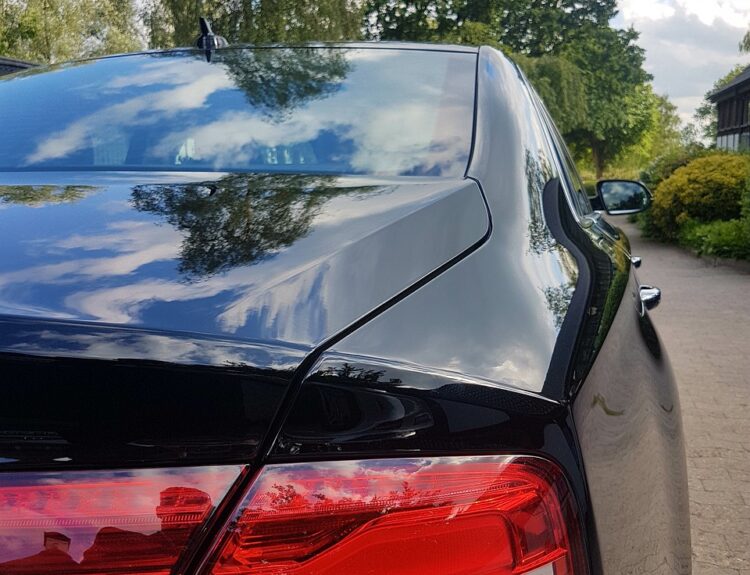Car window tinting is a popular upgrade for vehicle owners, offering both aesthetic appeal and functional benefits. However, many drivers in India wonder, “How much does it cost to tint car windows?” In this article, we will dive deep into the cost factors, legal regulations, types of window tints, and everything else you need to know about car window tinting in India.
What is Car Window Tinting?
Car window tinting involves applying a thin laminate film to the glass of a vehicle’s windows. This film darkens the window, providing various advantages such as UV protection, heat rejection, glare reduction, and added privacy. The practice has gained significant traction in India, not just for aesthetic reasons, but due to its functional value in the country’s hot and sunny climate.
Why Tint Car Windows in India?
Before discussing costs, it’s important to understand why car window tinting is beneficial, especially in a country like India.
- Heat Reduction: India experiences high temperatures in most parts of the year, particularly in states like Rajasthan, Gujarat, and Tamil Nadu. Window tints help reduce the amount of heat that enters your vehicle, making it more comfortable.
- UV Protection: Window tints block harmful ultraviolet (UV) rays from the sun, helping to protect your skin from potential damage and your car’s interior from fading.
- Increased Privacy and Security: Darker windows can provide additional privacy by making it difficult for outsiders to see inside the vehicle. This is particularly beneficial for individuals who regularly travel with valuable items in their cars.
- Glare Reduction: Window tints help reduce glare from the sun and headlights of other vehicles, which can improve driving safety.
- Aesthetic Appeal: Tinted windows can give your car a sleek, modern look, enhancing its overall aesthetic appeal.
Types of Car Window Tints Available in India
There are several types of window tints available in the Indian market, each varying in cost and quality. Let’s explore the most popular types:
- Dyed Film: The most affordable option, dyed window tint film is made by placing a layer of dye between adhesive layers. While it provides heat and glare reduction, it can fade over time and offer less durability.
- Metalized Film: This type of tint uses tiny metallic particles to reflect heat and UV rays. It offers better durability and heat rejection than dyed film but can interfere with electronic signals (such as GPS and mobile reception).
- Carbon Film: Carbon tints provide excellent UV protection and heat rejection without interfering with electronics. This type of film also has a sleek matte finish that enhances the look of your vehicle.
- Ceramic Film: The most expensive and advanced type of window tint, ceramic film offers superior UV protection, heat rejection, and durability. It does not interfere with electronics and provides the best overall performance.
Cost of Car Window Tinting in India
The cost to tint car windows in India depends on several factors:
- Type of Tint: The type of film you choose plays a major role in determining the overall cost. For instance, dyed tints are cheaper compared to ceramic tints, which can be significantly more expensive.
- Brand: Different brands offer varying levels of quality and pricing. Popular brands in India include 3M, Garware, and Llumar. A premium brand such as 3M will cost more, but it will also provide better heat rejection and UV protection.
- Size of the Vehicle: Larger vehicles like SUVs and sedans will naturally require more film and, therefore, cost more to tint compared to smaller cars.
- Location: Costs can also vary depending on the city or state you’re in. Car window tinting in metropolitan areas like Delhi, Mumbai, and Bangalore may be priced higher than in smaller cities or towns.
- Additional Features: Some tints come with special features such as anti-scratch coatings, which can add to the overall cost.
Here’s a general breakdown of the cost to tint car windows in India based on the type of film:
- Dyed Film: ₹1,500 – ₹3,000
- Metalized Film: ₹3,000 – ₹6,000
- Carbon Film: ₹7,000 – ₹15,000
- Ceramic Film: ₹15,000 – ₹30,000
These prices are estimates and may vary based on location and specific requirements.
Legal Considerations for Car Window Tinting in India
Car window tinting in India is subject to legal restrictions. The Supreme Court of India has banned the use of black films on car windows and windshields for safety reasons. However, certain levels of Visible Light Transmission (VLT) are permitted:
- Front Windshield and Rear Window: Must allow at least 70% light transmission.
- Side Windows: Must allow at least 50% light transmission.
It’s important to ensure that the window tint you choose complies with these regulations. Failing to do so can result in fines, and in some cases, your tint may be removed by authorities.
How to Choose the Right Window Tint
When choosing window tint for your car in India, consider the following factors:
- Compliance with Regulations: Ensure the tint complies with the VLT regulations set by the Supreme Court.
- Heat and UV Protection: In India’s hot climate, opt for a tint that offers maximum heat rejection and UV protection.
- Durability: If you plan to keep your car for several years, investing in a durable option like ceramic or carbon film is a wise choice.
- Price: Your budget will ultimately dictate which tint you choose. While ceramic tints offer the best performance, dyed tints are more affordable and still provide some benefits.
Benefits of Professional Tinting Services
While it’s possible to purchase DIY tinting kits, it’s highly recommended to get your windows professionally tinted. Professional installers have the experience and equipment to apply the tint evenly and without bubbles. They can also help ensure the tint complies with legal requirements.
Additionally, many professional services offer warranties, ensuring your investment is protected in case of peeling, bubbling, or fading.
FAQs on Car Window Tinting in India
Q1: Is car window tinting legal in India?
Yes, car window tinting is legal in India, but it must comply with the Supreme Court’s guidelines. The front windshield and rear window must allow at least 70% of light through, while side windows must have a VLT of 50% or more.
Q2: How much does it cost to tint car windows in India?
The cost of window tinting in India depends on the type of film, the size of the vehicle, and the brand of the film. Generally, prices range from ₹1,500 to ₹30,000.
Q3: Which is the best type of window tint for Indian weather?
Ceramic and carbon films are considered the best options for India’s climate, as they provide excellent UV protection, heat rejection, and durability without interfering with electronics.
Q4: Can I remove window tint if it fades or bubbles?
Yes, window tint can be removed by professionals. If your tint has faded or started bubbling, you can get it removed and replaced.
Q5: Will tinting my car windows void the warranty?
In most cases, tinting does not void your car’s warranty. However, it’s best to check with your vehicle’s manufacturer or dealership for specific details.
Q6: How long does window tinting last?
High-quality tints like ceramic or carbon films can last up to 10 years or more if properly cared for. Cheaper tints, such as dyed films, may need replacement after 3 to 5 years.
Q7: Can tinted windows improve fuel efficiency?
While window tints won’t directly improve fuel efficiency, they can reduce the load on your air conditioning system by keeping your car cooler, which can lead to marginal fuel savings over time.
Q8: How long does it take to tint car windows?
Professional tinting services usually take between 2 to 4 hours to tint a car, depending on the vehicle size and the type of tint.
Q9: Is it possible to tint windows darker than legally allowed in India?
While it is technically possible, it is illegal to tint windows darker than the permitted levels. Doing so can result in fines and removal of the tint by authorities.
Q10: Are there any special care instructions for tinted windows?
Yes, avoid cleaning tinted windows with ammonia-based cleaners, as they can damage the tint. Use a soft cloth and a mild soap solution to clean them instead.
Tinting your car windows in India can provide multiple benefits, from improving comfort and privacy to enhancing the vehicle’s appearance. However, it’s crucial to choose a tint that fits within your budget and complies with the country’s legal regulations. Whether you opt for a basic dyed film or a high-end ceramic tint, professional installation is key to ensuring long-lasting results.
By understanding the types of window tints, associated costs, and legalities, you can make an informed decision that suits both your needs and your budget.
Read More:






